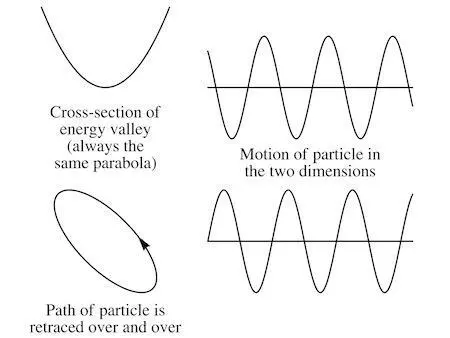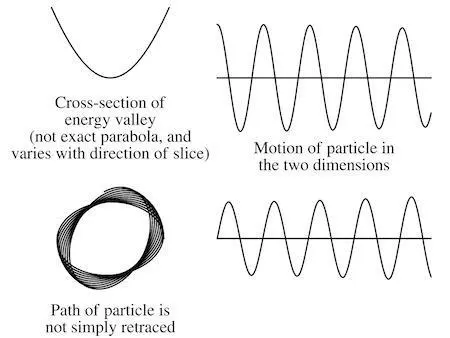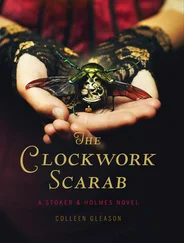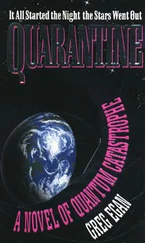Greg Egan - The Clockwork Rocket
Здесь есть возможность читать онлайн «Greg Egan - The Clockwork Rocket» весь текст электронной книги совершенно бесплатно (целиком полную версию без сокращений). В некоторых случаях можно слушать аудио, скачать через торрент в формате fb2 и присутствует краткое содержание. Жанр: Фантастика и фэнтези, на английском языке. Описание произведения, (предисловие) а так же отзывы посетителей доступны на портале библиотеки ЛибКат.
- Название:The Clockwork Rocket
- Автор:
- Жанр:
- Год:неизвестен
- ISBN:нет данных
- Рейтинг книги:3 / 5. Голосов: 1
-
Избранное:Добавить в избранное
- Отзывы:
-
Ваша оценка:
- 60
- 1
- 2
- 3
- 4
- 5
The Clockwork Rocket: краткое содержание, описание и аннотация
Предлагаем к чтению аннотацию, описание, краткое содержание или предисловие (зависит от того, что написал сам автор книги «The Clockwork Rocket»). Если вы не нашли необходимую информацию о книге — напишите в комментариях, мы постараемся отыскать её.
The Clockwork Rocket — читать онлайн бесплатно полную книгу (весь текст) целиком
Ниже представлен текст книги, разбитый по страницам. Система сохранения места последней прочитанной страницы, позволяет с удобством читать онлайн бесплатно книгу «The Clockwork Rocket», без необходимости каждый раз заново искать на чём Вы остановились. Поставьте закладку, и сможете в любой момент перейти на страницу, на которой закончили чтение.
Интервал:
Закладка:
Yalda paused to take in the students’ expressions, to see who was beginning to look burdened by the uncertainty they were facing, and who was exhilarated by the prospect of searching for something entirely new.
“I don’t have the answers,” she said. “All I can do is give you some tools that will help you probe these mysteries, then stand back and see what you discover.”
“Yalda, can I speak with you?”
Yalda looked up from her notes to see Lavinio on the ropes at the entrance to her office. “Of course.”
As he approached, the solemnity of his demeanor became apparent. “Don’t tell me it’s the wheat,” Yalda begged him.
“The wheat’s fine,” Lavinio assured her. “But there’s blight in some of the goldenrod.”
“Some of it?”
“Not every plant is showing signs of infection,” he said, “but there are infected plants in all four gardens.”
“How could that happen?” The gardens were worked by different staff, and even Lavinio refrained from visiting all of them. An infection in one should not have spread easily to the others.
“We can’t know for sure.”
“Can’t we make a guess, to try to stop it happening again?” If the protocols for disease limitation were flawed, they needed to be corrected urgently.
Lavinio said, “It was probably all the re-planting work, just before the spin-up. All that dust in the air was impossible to contain; it would have spread throughout the mountain.”
That did make sense—and if the hazard had not been avoidable, at least there was a chance it would never be repeated.
Yalda braced herself. “So, how do things stand?”
“We’ve taken three cuttings of goldenrod from each garden and started growing them in a dozen new locations,” Lavinio said. “The transfer was done with all possible care; two separate couriers who’d never been in any of the gardens took each cutting part of the way, and I’ve recruited new people to look after the plants. But realistically, we can’t expect them all to stay free of the blight.”
“No.”
“We can’t risk harvesting petals from the cuttings at all, until they’re established,” Lavinio continued. “And it might be unwise to take too many from the original plants either, right now; we don’t want to weaken them unduly before we know that at least some of the new ones have ended up in good condition.”
“I understand.” For the next few stints there would not be much holin produced; that was unavoidable.
But Lavinio had done everything possible to safeguard their future supplies. With a bit of luck, the shortage need not be severe or long-lasting.
Yalda said, “Let me know if anything changes.”
In the pharmacy, Sefora checked the stock of holin tablets. “We have enough for about seven stints at our current usage,” she said. “There are some petals still being processed, but that will only add a day or two to the supply.”
Since the launch, every woman on the Peerless had been taking a regular dose of holin that depended on her age, using tables Daria had drawn up that erred on the side of caution. Until now, the gardens had been providing more than enough goldenrod petals to keep the stores replenished; the real limit on building up a larger stockpile had been the shelf life of the drug.
“Can you draw up new dosage tables?” Yalda asked.
“On what basis?”
“We need to stretch out the stockpile—but there’s no point letting the holin sit and go bad.”
“So… stretch it out how long?” Sefora pressed her.
“It’s hard to say,” Yalda admitted. “It’s not clear when the gardens will be producing again.”
“How much are you willing to cut the dosages?”
“How much can I, without putting people at risk?”
“No one has those numbers,” Sefora replied. “Holin’s efficacy has never been properly studied, never quantified. All we’ve ever had are anecdotal reports: if you heard of a woman of a given age who wasn’t protected by the dose you heard she’d been taking, you assumed it would be wise to take more.”
On the Peerless , that uncertainty was meant to have been subsumed by a constant surplus of the drug—and with four bountiful gardens, that should have been possible.
“I suppose it’s too late to start testing it on arborines,” Yalda lamented.
“That would take years,” Sefora agreed.
“Not to mention some actual holin we could spare.”
Sefora said, “I’ll draw up dosage tables that will let the stockpile last ten stints. Any longer than that, and I wouldn’t trust the quality. Do you want me to make any exceptions?”
“Exceptions?”
“If we cut the older women’s doses in strict proportion to everyone else’s,” Sefora explained, “I can’t promise that they won’t face a greater increase in risk.”
Yalda said, “You mean a drop of three parts in ten could be enough…?” She pictured Tullia, lying motionless on the floor of her apartment. No one had the numbers, but they all had their fears.
“I could always leave the dosage for the senior women unchanged,” Sefora said. “If we made an exception for everyone older than a dozen years and ten, that’s less than a sixth of the female population. Spread out between all the younger cohorts, the difference would scarcely be noticeable.” She was not quite as old as Yalda, but she would fall into the same category.
Yalda considered the suggestion. Wouldn’t it be fairer, to protect the most vulnerable members of the crew? It would certainly be prudent: they couldn’t risk having the most experienced women taken without warning, leaving the Peerless drifting aimlessly through the void.
She said, “I think you should do that.”
“If a particle is moving in an energy valley that takes the form of a parabola,” Yalda told the class, “it will repeat the same harmonic motion over and over, with a frequency that depends only on a single number describing the parabola’s shape.”
“Like a weight oscillating on the end of a spring?” Prospera suggested.
“Or a pendulum under gravity?” Fatima added.
“In idealized versions, yes,” Yalda agreed, “though in reality both those systems experience friction, and both have small deviations from a parabolic potential.
“Still, in the absence of friction—or light generation—the particle’s energy will be conserved, and if it’s moving back and forth in just one dimension, even if the valley isn’t shaped like a parabola the particle will always return to its starting point. So its motion will be perfectly cyclical, and it won’t have any harmonics with a lower frequency than that cycle.
“But in two or more dimensions, things start to get more complicated. Even when energy is conserved, a particle need not retrace its path exactly. If the shape of the valley is a perfect paraboloid it will do so—” Yalda sketched an example:

“But that’s not the case for the energy valley in a solid, due to Nereo’s potential. There, the cross-section isn’t exactly parabolic, and it will be shaped a bit differently when you slice it in different directions.”

“So instead of moving back and forth with a single, pure frequency, a luxagen in this energy valley will follow a path that we need to describe with a multitude of different frequencies, all present in different amounts.”
“Like describing the strengths of all the colors in a flame?” Ausilia asked.
Читать дальшеИнтервал:
Закладка:
Похожие книги на «The Clockwork Rocket»
Представляем Вашему вниманию похожие книги на «The Clockwork Rocket» списком для выбора. Мы отобрали схожую по названию и смыслу литературу в надежде предоставить читателям больше вариантов отыскать новые, интересные, ещё непрочитанные произведения.
Обсуждение, отзывы о книге «The Clockwork Rocket» и просто собственные мнения читателей. Оставьте ваши комментарии, напишите, что Вы думаете о произведении, его смысле или главных героях. Укажите что конкретно понравилось, а что нет, и почему Вы так считаете.










